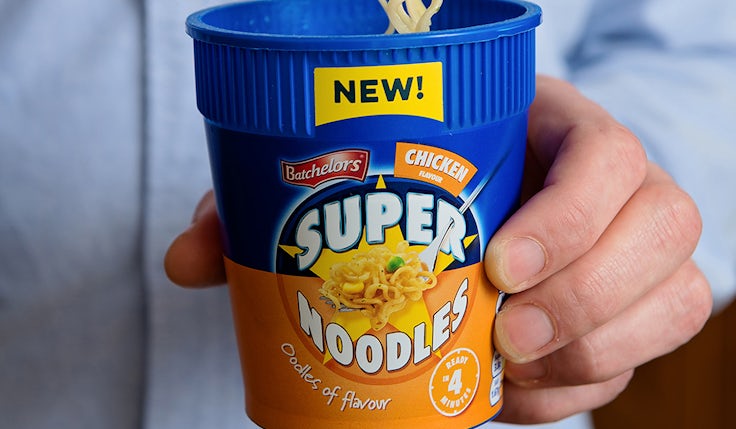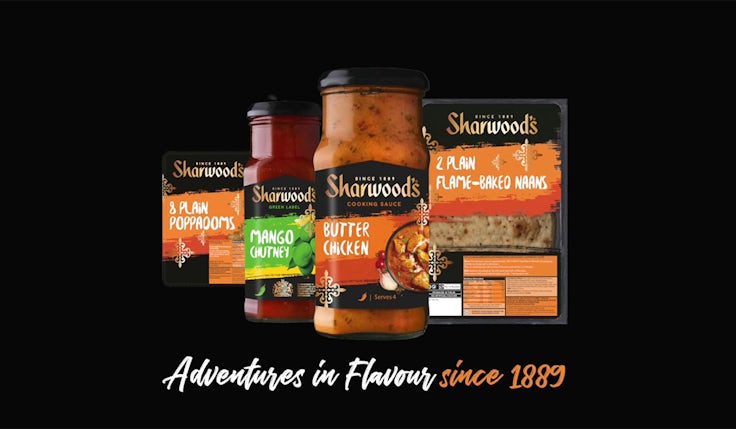Premier Foods: Brand extensions proving ‘particularly successful’ at driving growth
Expanding into new categories has been a source of growth for Premier Foods, while “sharper” promotional price points are supporting its return to volume growth.
 Premier Foods, the owner of brands such as Mr Kipling, Batchelors and Bisto, says its extension into new categories is proving “particularly successful” for the business and becoming a solid “source of growth”.
Premier Foods, the owner of brands such as Mr Kipling, Batchelors and Bisto, says its extension into new categories is proving “particularly successful” for the business and becoming a solid “source of growth”.
Speaking to investors today (16 May) on its results for the year ended 30 March, CEO Alex Whitehouse said revenue from new categories increased by 72% in the past year.
He attributed part of its new category growth to Ambrosia, which has now become the company’s fourth £100m brand and accounts for 7% of its core brand sales.
The growth was driven by the Ambrosia Deluxe range and its extension into breakfast through porridge pots. Sales of its porridge pots doubled since last year, giving the brand a 10% market share in the new category.
Premier Foods and extended distribution of its Angel Delight ice cream and Oxo marinades. The business saw revenue growth of over 50% in ice cream, driven by ranges under the Angel Delight and Mr Kipling brands. This will be extended in over the coming year with the launch of handheld Angel Delight ice cream.
Category agnostic
Whitehouse said it’s looking to add more brands to its portfolio, which it believes will benefit from the company’s “branded growth model”.
Its branded growth model drives “consistent growth” across its brands through a combination of new products, advertising, and strengthening its relationships with retail customers, he claimed.
“We’re relatively category agnostic,” he said. “It’s more about what’s the potential for the brand if we apply a model to it?”
If you were to do a shopping trip today and take advantage of various promotions, many of our products are actually cheaper than they were a year ago
Alex Whitehouse, Premier Foods
For the financial year, headline revenue grew by 15.1% to £1.12bn, and sales in Premier Foods’ branded business grew by 13.5%.
He described brands as the “the beating heart” of its success and that “sharper” promotional price points are supporting its return to volume growth.
In November, the company started investing in promotional prices. Whitehouse said the focus on promotion has now had an impact, adding that branded volumes returned to growth in the fourth quarter.
“If you were to do a shopping trip today and take advantage of various promotions, many of our products are actually cheaper than they were a year ago,” he said.
He said that its promotional prices are the lowest price on its products, which makes it more “accessible” to consumers.
Whitehouse said Q4 was going to be a “transitioning quarter”. The company entered the quarter with value-led growth, with higher price per unit, and exited the quarter with volume-led growth, with volumes at a lower price per unit.
Whitehouse said he is “comfortable” with the company’s current pricing strategy and doesn’t anticipate a need to increase anytime soon.
Premier Foods expresses confidence in ‘really strong toolbox’ to drive volume growth
In January, Whitehouse stressed that Premier Foods is taking a “scientific” approach to price promotion, after rising prices to match inflation. The business is “constantly optimising” its promotions, he said, using econometric modelling to do this.
The business is deploying price promotions specifically in the areas where it sees the most risk for elasticities, meaning only in the spaces where consumers are likely to not buy its products due to price.
Additionally, Whitehouse said all its leading brands have benefitted from increased marketing investment, especially as it extends its ‘Best Restaurant in Town‘ campaign into its second year – an initiative aimed at showing consumers how to make affordable meals using Premier Foods’ brands.





